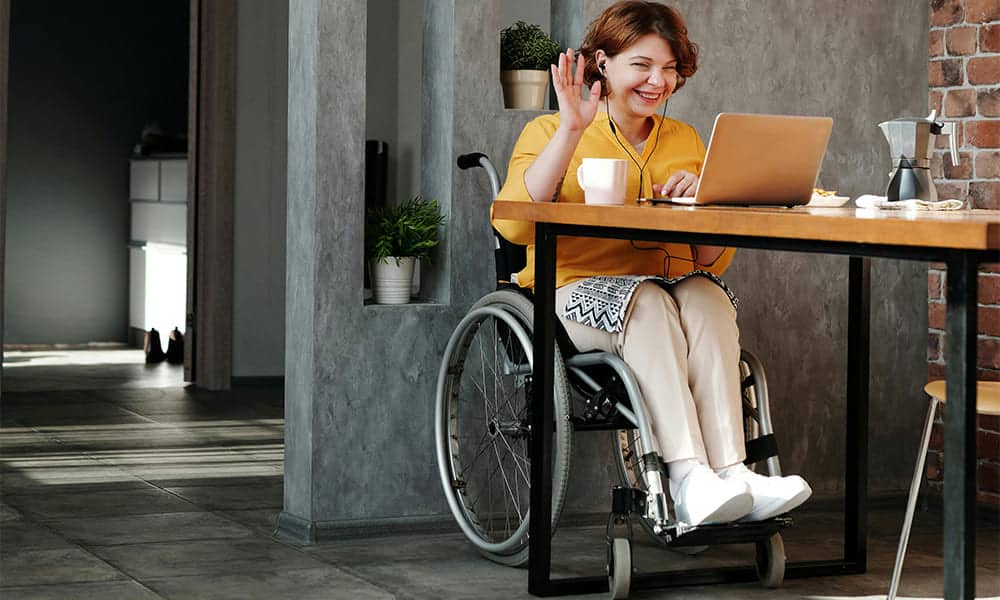Transitioning a loved one with dementia to assisted living can be a complex and emotional process. By understanding the key steps, addressing emotional needs, and providing practical support, you can facilitate a smoother transition and ensure a positive experience for both your parent and your family.

Christopher Ravn
Key Takeaways
1. Prepare for the move by addressing financial and legal considerations, evaluating assisted living options, and addressing the emotional challenges involved.
2. Help your parent adjust to the new living arrangement by creating a familiar and comfortable space, providing emotional support, and encouraging social interaction.
3. Consult with healthcare professionals, social workers, or care managers for advice, support, and resources throughout the transition process.
Table of Contents
1. How To Move A Parent With Dementia To Assisted Living
2. Key Steps To Take Before Moving A Parent To Memory Care Or Assisted Living
3. How Can You Make The Actual Move Easier For A Father With Alzheimer’s?
4. How To Help A Parent Adjust To Assisted Living After The Move?
5. How Can You Talk To A Parent With Dementia About Transitioning To Memory Care?
6. What If A Parent With Alzheimer’s Resists Moving
7. When Should An Alzheimer’s Patient Be Moved To Assisted Living?
8. Things To Pack For Your Parent Moving To Memory Care
9. Frequently Asked Questions About How To Move A Parent With Dementia To Assisted Living
How To Move A Parent With Dementia To Assisted Living
- Emotional challenges such as feelings of loss, guilt, and worry, and at the same time handling your parents’ anxiety, frustration, and resistance.
- There are practical challenges like transportation, adjusting to a new location, obtaining medical, social, and emotional support, and adapting to a new routine.
- Examine assisted living options as well as other services offered, like training and community events.
- Work with the new facility to develop transition plans, adapt to the surroundings, and establish new routines.
- Pack items that provide a sense of comfort and belonging in the new place.
- Allow your parents to get used to the new environment and that it will take weeks to get adjusted.
- Visit your parents regularly to understand their issues and address any concerns that may arise.
Key Steps To Take Before Moving A Parent To Memory Care Or Assisted Living
- Financial considerations, such as your parents’ financial issues, require you to explore options and benefits and create a budget for their care.
Legal considerations such as power of attorney ensure that they update their will and consult a professional to handle legal issues tied to senior care.
Evaluate facilities such as memory care and assisted living facilities and consider factors such as services and location. Visit the facility and inquire about their experiences, activities, staff, and training, and check and validate their accreditation and certifications.
- Your parents’ specific needs, such as memory care or skilled nursing, are provided.
- Your parents’ needs are determined and seek places that have the desired services and amenities.
- Your parents are involved in the decision-making process.
- You assess your parents’ experience at the facility and adjust where necessary.
How To Begin Preparing Your Loved One And Family Members For The Transition?
- Setting realistic expectations by establishing open communication, having a realistic perspective, and addressing the emotional concerns of both your family and loved ones.
- Have an early conversation with your loved one at a place that is private and calm.
- Explain the diagnosis clearly and simply.
- Answer the questions and concerns of your loved ones and family members.
It is important to involve your loved one in the decision-making process, as it will provide autonomy in their life choices and, overall, respect their wishes.
By setting realistic expectations, starting the conversation early, and involving your loved ones in decision-making, you can help ease anxiety and create a more supportive environment for everyone involved.
How Can You Make The Actual Move Easier For A Father With Alzheimer’s?
- Discuss with your father about the move by using simple and clear language.
- Share with your caregivers’ personal stories and habits about your father. This will help them come up with better care plans.
- Validate your father’s emotions, recognizing that moving causes him to feel anxious, frustrated, or sad. Ensure that he feels supported and reassure him that he will not be abandoned.
- Your father feels a loss of independence.
- The entire family may need to adjust to a new routine and responsibilities.
- They grieve about the loss and the situation as it is.
Join families who have found relief with EVY LIGHT®
Click below to see how EVY LIGHT® is helping others
How To Help A Parent Adjust To Assisted Living After The Move?
- The living space is decorated and personalized like their own home.
- They have familiar items as they did in their home. Don’t forget to get gifts for dementia patients.
- There is soothing music therapy for dementia or aromas that ignite positive feelings.
- Helping your parents come up with a daily routine.
- Encouraging them to socialize with other residents.
- Listening to them and providing emotional support.
- Helping them create a daily schedule.
- Providing activities such as playing games, watching movies, reading, or activities for dementia patients.
- Visiting your parents regularly and staying connected by ensuring frequent visits, phone calls, and video chats. Work closely with the staff to receive and provide information about your parents’ needs and medical history and regularly monitor the progress to see if there are any concerns.
How Long Does It Take For A Mother With Dementia To Adjust To Assisted Living?
- Know that the adjustment period takes time.
- Be calm and support your loved one so they feel more at home.
- Bring personal items to their new living space.
- Inform the staff about the habits and preferences of your loved one.
- Visit your mother regularly so that they will feel at ease and secure.
How Can You Talk To A Parent With Dementia About Transitioning To Memory Care?
- Select a place where it is calm and quiet.
- Express your concern to your parent.
- Listen actively and validate their feelings even if you do not understand.
- Keep the message simple and avoid ambiguity.
- Repeat the important points and be consistent throughout.
- Ensure that you focus on the positive aspects of memory or personalized care.
- Use statements with the word “we” to provide a sense of partnership.
- Do not argue and remain assertive.
- “We should think of the best care for you. Memory care is the best to provide you with care and support.”
- “I understand that this is difficult for you. I am here to hold your hand every step of the way.”

What If A Parent With Alzheimer’s Resists Moving
- Fear of the unknown.
- Used to familiar activities or routines.
- Loss of autonomy.
- Feeling anxious about leaving their memories and items behind.
- Get your parents to be part of the decision-making.
- Offer simple and clear guidelines.
- Bring items that they are familiar with to their new accommodation.
- Slowly transition out of having short overnight stays once your parents become comfortable.
What Can You Do On Your Father's Moving Day To Make The Process Smoother?
- Create a project plan and outline tasks, timelines, and responsibilities.
- Pack the important items and label them.
- Hire a mover to transport the items.
- Prepare for emotional reactions from family members and your father on the day of the move.
- Provide support and reassurance.
- Take a break to recharge and rest.

When Should An Alzheimer’s Patient Be Moved To Assisted Living?
- Mobility starts to decline, and there is a high risk of falling.
- The patient begins to struggle with daily activities such as grooming, dressing, and bathing.
- There are issues with incontinence and the need to use adult diapers.
- Patient becomes disoriented, confused, and has hallucinations.
- Caregivers get burdened emotionally and physically.
- Their health starts to decline or they start to wander or harm themselves.
- Evaluate your parents’ physical, cognitive, and emotional abilities.
- Speak to your doctor, geriatrician, or social worker about memory care or assisted living options.
Best Place For Someone With Dementia To Live
- Assisted living.
- Nursing homes.
- Memory care.
- Ensure that the staff-to-resident ratio is low.
- Ensure staff are trained and experienced with dementia care.
- Ensure activities and programs are designed for dementia patients.
- Check the vicinity to ensure that it is safe, has secure exits, proper lighting, and non-slip floors.
- Consider your parents’ physical, social, and cognitive issues.
- Ensure that you can visit as often as you like.
- Find a location that is close to your home.
- Ensure that there is enough cost for care.
- Get your parents to make their own decisions where necessary.
Things To Pack For Your Parent Moving To Memory Care
- Proper clothing for everyday use.
- Personal items such as blankets, photos, and sentimental items.
- Personal care items such as glasses, hearing aids, and medications.
- Memory aids such as music playlists, books, and favorite pillows. Incorporate familiar items from your parent’s home to create a sense of comfort and continuity.
- Bring their favorite colors, patterns, or textures to decorate their new space.
- Consider packing a few favorite dishes or kitchen items to make mealtime more familiar.
Frequently Asked Questions About How To Move A Parent With Dementia To Assisted Living
How To Move A Parent With Dementia To Assisted Living?
- Emotional challenges such as feelings of loss, guilt, and worry, and at the same time handling your parents’ anxiety, frustration, and resistance.
- There are practical challenges like transportation, adjusting to a new location, obtaining medical, social, and emotional support, and adapting to a new routine.
How Long Does It Take For A Dementia Patient To Adjust To Assisted Living?
- Dysphagia increases the risk of food and liquid entering the lungs.
- UTI in dementia patients may increase infection to the bloodstream, causing sepsis.
- Prone to heart attacks.
- Facing dehydration and malnutrition.
- Know that the adjustment period takes time.
- Be calm and support their loved ones so they feel more at home.
- Bring personal items to their new living space.
- Inform the staff about your loved one’s habits and preferences.
- Visit your mother regularly so that they will feel at ease and secure.











































